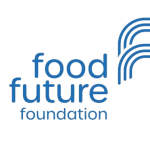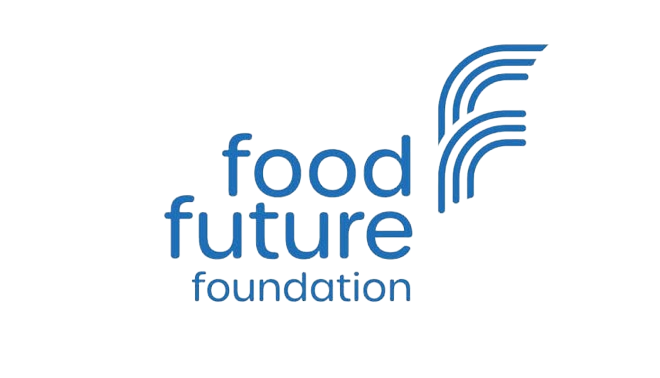Projects & Activities
“Eat Right: Food Systems Approach” Textbook
In 2020, we published the “Eat Right: Food Systems Approach” textbook, a comprehensive guide for students in food-related fields. This publication offers an integrated view of food systems, emphasizing the connections between food safety, nutrition, environmental sustainability, and socio-economic factors. It was crafted by a team of over fifty experts, including Pawan Agarwal, former CEO of FSSAI, and Professor Pulkit Mathur from Lady Irwin College, New Delhi. We are actively working to integrate this textbook into academic curricula nationwide.
Impact: The textbook has become a key resource for students and professionals alike, fostering a deeper understanding of the complexities within food systems.
India Food System Vision 2030 Report
In July 2022, the Foundation published the India Food System Vision 2030 Report. This was developed following extensive consultations with more than 200 experts. The report features 32 essays across three pivotal themes: nourishing everyone for health and wellbeing, producing in harmony with nature, and ensuring inclusive, transformative, and equitable recovery. This visionary document serves as a roadmap for holistic food system transformation in India.
National Awards for Sustainable Sourcing
Initiated in 2020 and continued in 2021, these awards celebrate businesses that excel in sustainable sourcing, supporting natural farming, and enhancing livelihoods through their procurement practices. The awards, categorized into various sectors and sizes, underscore the importance of sustainable sourcing across the food industry.
Impact: These awards have incentivized companies to adopt more sustainable practices, contributing to a more responsible food industry.
ESG Food and Agriculture Benchmarking Initiative
Between February and April 2022, we undertook a benchmarking exercise for 50 leading companies in the agriculture and food sector in India, culminating in the India Food and Agriculture Benchmarking Report. This initiative, aimed at promoting transparency and sustainability, was conducted in collaboration with CII’s Food and Agriculture Centre of Excellence (FACE), the Food Foundation (UK), and the World Benchmarking Alliance.
Estimating Household Food Waste
From June 2021 to May 2022, we embarked on a ground-breaking study to estimate food waste at the household level across 12 Indian cities. This study aims to develop actionable strategies to significantly reduce food waste, addressing a critical issue that impacts both environmental sustainability and food security.
 Support for Rice Fortification at the National Level
Support for Rice Fortification at the National Level
In our efforts to combat micronutrient deficiencies, we have supported the large-scale fortification of rice, a staple in the Indian diet. This initiative is part of the government’s broader strategy to enhance the nutritional quality of food distributed through safety net programs. This initiative’s success story involves collaboration with the government and private sector to fortify rice, a staple food, with essential vitamins and minerals, addressing micronutrient deficiencies across vulnerable populations.
Technical Support for Fortification of Peanut-Jaggery Chikki
We provided technical assistance for the fortification of Peanut-Jaggery Chikki, a key component of the mid-day meal program in Andhra Pradesh. This project aims to improve the nutritional intake of over 3.4 million students, enhancing their growth and development without compromising on taste or quality.
The India Food Systems Fellowship (TIFF)
Launched in March 2023, TIFF is a comprehensive 10-month program designed to nurture future leaders in India’s food systems. The fellowship combines theoretical learning with practical experience, covering a wide range of topics crucial for the development of sustainable food systems.
Through these diverse projects and activities, the Food Future Foundation is making strides towards a sustainable, nutritious, and equitable food future, leveraging education, innovation, and strategic partnerships to drive people-centric food systems change.
Healthy Diet Awareness Programmes in Schools (2019-20)
Starting in October 2019, we launched awareness campaigns in schools across 16 cities, reaching over 1.5 million children. Through engaging Live Mascot Plays, we educated students about healthy eating and food fortification, in partnership with the FSSAI and Red Carpet Entertainers.
Life Skills and Food Literacy Programme
This comprehensive initiative, part of the Coalition for Food System Transformation in India (CoFTI), aims to shift diets towards sustainability. Drawing on the National Education Policy 2020 and other key guidelines, we’ve reached students with a curriculum that blends health, wellness, and food literacy, emphasizing a balanced approach to physical health, mental well-being, and nutritional knowledge.
Food Literacy in Schools in Rajasthan and Karnataka
In collaboration with the Nourishing Schools Foundation, we’ve developed a food literacy curriculum for students in Rajasthan and Karnataka. This program, which has been introduced to schools in these states, focuses on the interconnectedness of our global community and the importance of sustainable living, reaching students with vital skills and knowledge about food.
Workshop for School Principals in Hyderabad
On November 28, 2023, we conducted a workshop for school principals in Hyderabad, focusing on integrating food literacy into school curricula. This effort, in collaboration with Millet Bank and Country, inspired educators to adopt this crucial program for educating the younger generation on sustainable eating habits.
The Life Skills and Food Literacy Programme at Lotus Valley International School, Gurugram
We successfully implemented our Life Skills and Food Literacy program at Lotus Valley International School, Gurugram, enhancing students’ understanding of sustainable food systems. This program supports the school’s holistic education goals, empowering students to make informed dietary and lifestyle choices.
Partnership with Bharat Scouts and Guides
We are working with the Bharat Scouts and Guides to introduce life skills and food literacy badges, designed to educate young participants on various themes from socio-emotional learning to food safety and nutrition. This initiative aims to equip scouts and guides with essential knowledge and skills for their development and well-being.
Collaboration with the Government of Andhra Pradesh’s Department of School Education
In a pioneering effort, we’re collaborating with the Government of Andhra Pradesh to integrate the Life Skills and Food Literacy Programme across schools in the state. This collaboration seeks to enrich the educational curriculum with essential life skills and comprehensive food literacy, preparing students to make informed decisions about their health and nutrition.

